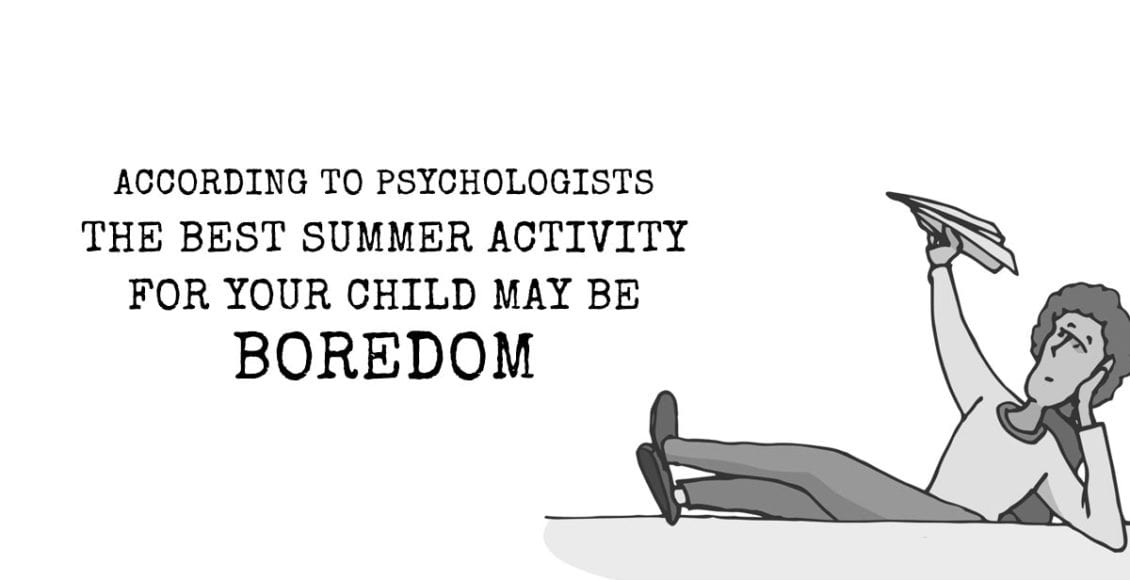According to Psychologists The Best Summer Activity For Your Child May Be Boredom

“When we are children we seldom think of the future. This innocence leaves us free to enjoy ourselves as few adults can. The day we fret about the future is the day we leave our childhood behind,” wrote Patrick Rothfuss.
Are we forcing this transition much too early?
We like to think of childhood as a time to climb trees and make mud pies.
The reality for today’s youth, however, is something entirely different. We shuffle our children from school to violin to gymnastics, after which they come home to start their homework. Summer is a time for piano workshops, rather than lazy beach days.
Today’s summer camp experiences are more likely to focus on math enrichment and college preparation than on a heated game of capture-the-flag.
I am as guilty as anyone of perpetuating this mindset. In fact, in a moment of honest self-reflection, I might even be forced to admit I am probably much worse than most. My son’s weekly routine involves music class, soccer practice, speech therapy, church groups, and other “enrichment activities.” He has yet to turn three years old.
Kids today are overscheduled for sure – but aren’t these activities supposed to be good for them? Art class? Karate? Computer camp? Don’t they need to be doing these things if they’re to keep up in our fast paced society?
The surprising answer, researchers say, is a resounding “no.”
This is not a groundbreaking realization, nor is it a new one. As early as 1993, psychoanalyst Adam Phillips explained that “the capacity to be bored can be a developmental achievement for the child.” He went on to explain that the process of navigating boredom is a chance to contemplate life and create one’s own sense of self and philosophy. “It is one of the most oppressive demands of adults that the child should be interested, rather than take time to find what interests him. Boredom is integral to the process of taking one’s time,” he wrote.
Modern psychologists agree.
Lyn Fry, a children’s educational psychologist based in London, is perhaps the one to explain it best. “Your role as a parent,” she said, “is to prepare children to take their place in society. Being an adult means occupying yourself and filling up your leisure time in a way that will make you happy. If parents spend all their time filling up their child’s spare time, then the child’s never going to learn to do this for themselves.”
Reassuringly, Fry does not advocate a total lack of structure and activity. Rather, she suggests helping young children to find their own direction.
At the beginning of the summer, Fry suggests that parents help their children to create a list of fun activities that they, themselves, would like to do.
They may want to bake cookies, run through the sprinklers, write and perform their own play, or go “camping” in the backyard. They may have an art project in mind – or they may not. It’s important that the list reflect their own interests entirely.
Then, if the child becomes bored, you can encourage them to choose an activity from the list that they created themselves. This, explains Fry, gives the child a sense of ownership in how they choose to spend their own time. In a world where so many adults struggle with time management, isn’t this skill much more valuable than another piano class?
“Summer will end soon enough,” wrote George R.R. Martin, “and childhood as well.” As we begin this summer, let’s make a commitment to stop rushing both of these treasures. Our children may be better off for it.


